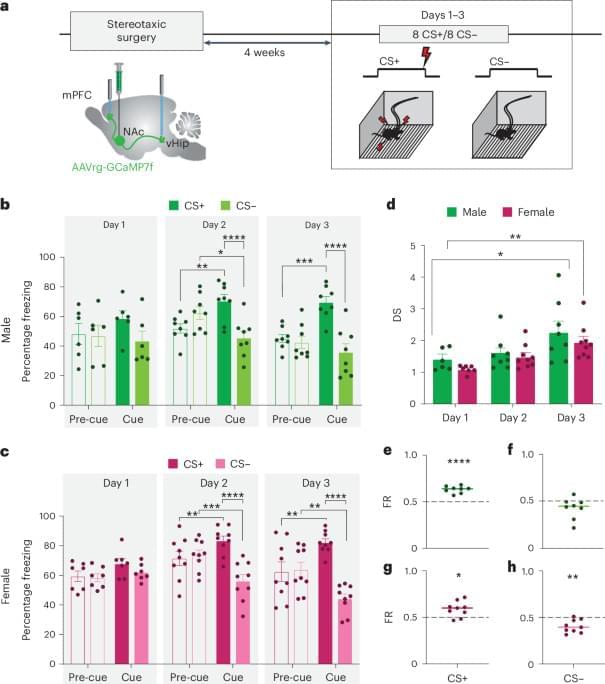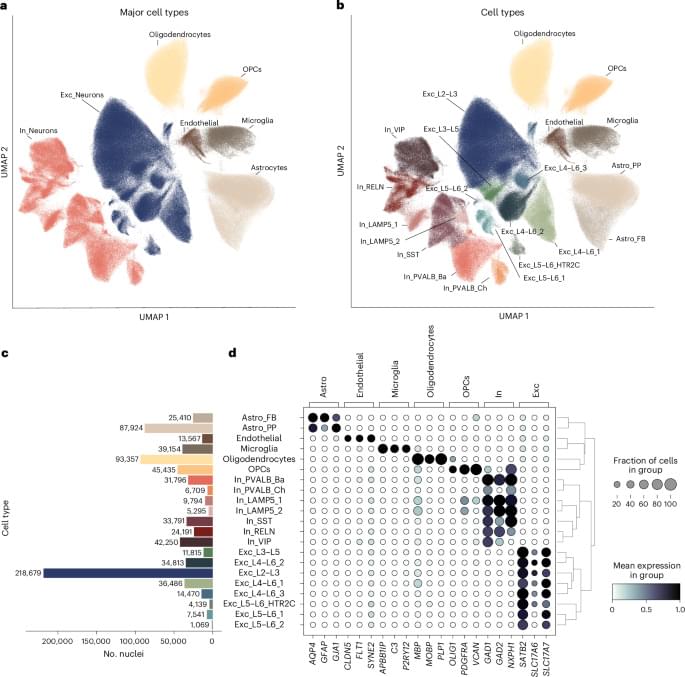Randal Koene discusses Whole Brain Emulation on the H+ Magazine podcast. He touches on the subjects of connectomics, neural mapping, optogenetics, and neural prosthesis.
Category: neuroscience – Page 406


‘Brain-breaking’ glass bricks are 3D printed, reusable, and strong
Using a 3D printer that works with molten glass, researchers forged LEGO-like glass bricks with a strength comparable to concrete. The bricks could have a role in circular construction in which materials are used over and over again.
“Glass as a structural material kind of breaks people’s brains a little bit,” says Michael Stern, a former MIT graduate student and researcher in both MIT’s Media Lab and Lincoln Laboratory. “We’re showing this is an opportunity to push the limits of what’s been done in architecture.”
Stern is also the founder of MIT spinoff, Evenline. That company developed a special 3D printer that can execute additive manufacturing using molten glass as its feedstock, which you can see in operation in the following video.

Recharging mitochondria—nanoflowers offer a new way to simulate energy production to improve aging ailments
While current treatments for ailments related to aging and diseases like type 2 diabetes, Alzheimer’s, and Parkinson’s focus on managing symptoms, Texas A&M researchers have taken a new approach to fight the battle at the source: recharging mitochondrial power through nanotechnology.
Led by Dr…
When we need to recharge, we might take a vacation or relax at the spa. But what if we could recharge at the cellular level, fighting against aging and disease with the microscopic building blocks that make up the human body?

Recharging the powerhouse of the cell
When we need to recharge, we might take a vacation or relax at the spa. But what if we could recharge at the cellular level, fighting against aging and disease with the microscopic building blocks that make up the human body?
The ability to recharge cells diminishes as humans age or face diseases. Mitochondria, often called the powerhouse of the cell, are central to energy production. When mitochondrial function declines, it leads to fatigue, tissue degeneration, and accelerated aging. Activities that once required minimal recovery now take far longer, highlighting the role that these organelles play in maintaining vitality and overall health.
While current treatments for ailments related to aging and diseases like type 2 diabetes, Alzheimer’s, and Parkinson’s focus on managing symptoms, Texas A&M researchers have taken a new approach to fight the battle at the source: recharging mitochondrial power through nanotechnology.

Spiking Neural Networks and Their Applications: A Review
The past decade has witnessed the great success of deep neural networks in various domains. However, deep neural networks are very resource-intensive in terms of energy consumption, data requirements, and high computational costs. With the recent increasing need for the autonomy of machines in the real world, e.g., self-driving vehicles, drones, and collaborative robots, exploitation of deep neural networks in those applications has been actively investigated. In those applications, energy and computational efficiencies are especially important because of the need for real-time responses and the limited energy supply. A promising solution to these previously infeasible applications has recently been given by biologically plausible spiking neural networks. Spiking neural networks aim to bridge the gap between neuroscience and machine learning, using biologically realistic models of neurons to carry out the computation. Due to their functional similarity to the biological neural network, spiking neural networks can embrace the sparsity found in biology and are highly compatible with temporal code. Our contributions in this work are: (i) we give a comprehensive review of theories of biological neurons; (ii) we present various existing spike-based neuron models, which have been studied in neuroscience; (iii) we detail synapse models; (iv) we provide a review of artificial neural networks; (v) we provide detailed guidance on how to train spike-based neuron models; (vi) we revise available spike-based neuron frameworks that have been developed to support implementing spiking neural networks; (vii) finally, we cover existing spiking neural network applications in computer vision and robotics domains. The paper concludes with discussions of future perspectives.
Keywords: spiking neural networks, biological neural network, autonomous robot, robotics, computer vision, neuromorphic hardware, toolkits, survey, review.

DNA Computing Evolves: New System Stores Data, Plays Chess, and Solves Sudoku Puzzles
Last month, a team from North Carolina State University and Johns Hopkins University found a workaround. They embedded DNA molecules, encoding multiple images, into a branched gel-like structure resembling a brain cell.
Dubbed “dendricolloids,” the structures stored DNA files far better than those freeze-dried alone. DNA within dendricolloids can be repeatedly dried and rehydrated over roughly 170 times without damaging stored data. According to one estimate, each DNA strand could last over two million years at normal freezer temperatures.
Unlike previous DNA computers, the data can be erased and replaced like memory on classical computers to solve multiple problems—including a simple chess game and sudoku.
Neural Categories
In Disguised Queries, I talked about a classification task of “bleggs” and “rubes”. The typical blegg is blue, egg-shaped, furred, flexible, opaque, glows in the dark, and contains vanadium. The typical rube is red, cube-shaped, smooth, hard, translucent, unglowing, and contains palladium. For the sake of simplicity, let us forget the characteristics of flexibility/hardness and opaqueness/translucency. This leaves five dimensions in thingspace: Color, shape, texture, luminance, and interior.

How An Algorithm Feels From Inside
“If a tree falls in the forest, and no one hears it, does it make a sound?” I remember seeing an actual argument get started on this subject—a fully naive argument that went nowhere near Berkeleyan subjectivism. Just:
“It makes a sound, just like any other falling tree!” “But how can there be a sound that no one hears?”
The standard rationalist view would be that the first person is speaking as if “sound” means acoustic vibrations in the air; the second person is speaking as if “sound” means an auditory experience in a brain. If you ask “Are there acoustic vibrations?” or “Are there auditory experiences?”, the answer is at once obvious. And so the argument is really about the definition of the word “sound”